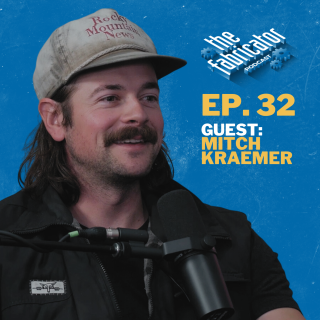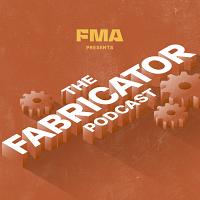Taking an aerial equipment fabrication business to the next level
Mitch Kraemer was working in the restaurant industry in Denver when friend and fabricator Tim Omspach approached him with an interesting career opportunity. Omspach had just launched Vvolfy Metal Works and acquired Ludwig Goppenhammer's business model of fabricating aerial equipment. Even though Kraemer didn't have any fabrication experience, he took on the challenge. Fast forward a few years later, Kraemer now manages Vvolfy's eastern operations out of Detroit in a booming aerial equipment market.
Kraemer joined host Dan Davis and co-host Darla Welton on The Fabricator Podcast to discuss all of that and more: His nontraditional path to working in the metal fabrication industry, learning how to weld, becoming part owner of a small business, navigating the growing aerial equipment market, moving from Denver to Detroit, the Meow Wolf experience, and the Yummyboy YouTube channel.
At the top, the crew discusses the best places in the Motor City to get Detroit-style pizza (shout out to Supino Pizzeria, Pie Sci, and Michigan & Trumbull) and how the square steel pan was designed after the trays used in the automotive industry to hold small car parts.
Email us at podcast@fmamfg.org with any comments, questions, or suggestions.
In This Episode
Learn more about FMA's Coil Processing Workshop and Tours
Learn more about FMA's annual surveys.
Learn more about Vvolfy Metal Works.
Read the 2-part Still Building America interviews about Vvolfy with Tim Omspach and Mitch Kraemer.
TRANSCRIPT
Mitch Kraemer: I was open to anything because it's more or less a blank slate. It was like, "(beep) a UPS driver." I don't know. But that last day at the shop, and Tim and I had obviously had a few beers, he was like, "What if you just opened up your own shop out east and you handled the Eastern United States, the sales we make out there? And I'll handle the West?" And I was like, "Are you serious?"
Sara Spring: FMA's coil processing workshop heads to Toledo. During this two day workshop, you'll connect with industry colleagues and gain insight into your toughest processing challenges. The small group setting includes facility tours for you to see equipment in action and discover new solutions for cutting, slitting, leveling, safety and more. For more information and to register online, please visit fmamfg.org.
Dan Davis: [foreign language 00:01:15] Dan Davis. [foreign language 00:01:18] I am the editor of The FABRICATOR magazine. I did say I'm Dan Davis? Yes, I did. Joined today by Darla Welton. She helps us out on thefabricater.com with the Still Building America series, as well as some other projects in conjunction with her husband, partner, and friend. All of these things.
Darla Welton: These many things.
Dan Davis: Yes. Yeah, he's at welding certification camp.
Darla Welton: He is.
Dan Davis: So she's helping us out today. We're having a conversation with Mitch Kraemer of Vvolfy, not Vvolify. I said before the interview.
Darla Welton: Vvolfy Metal Works, yes.
Dan Davis: Let it be known, I tried to do my research and still screw it up. But we were talking and toward the end of the conversation, we're talking about food. And as we're recording this it's kind of around lunch, we started thinking It'd be neat to talk about Detroit Pizza.
Darla Welton: Yes.
Dan Davis: Or maybe pizza in general.
Darla Welton: Pizza in general.
Dan Davis: What's maybe some of your favorite places in Detroit?
Darla Welton: Oh my gosh. Best pizzas, our favorites in Detroit are... There's a Detroit staple called Supinos. And they're out of Eastern market but they actually just had a fire. But they luckily opened a second location in the past couple of years that's way too close to our house. And they're on Woodward in New Center and they're outstanding. They also make some other dishes, but pizza is their specialty.
Gareth Sleger: Do they do the classic Detroit style?
Darla Welton: You know what? They don't they do.
Dan Davis: Oh, wow.
Darla Welton: They do a classic Italian style pizza like a wood fire oven, but they've been doing it for a long time here. What's really great is that the Detroit area, much like Chicago, had a great Italian immigrant population and so we reaped the benefits of that. So, yeah.
Dan Davis: So Gareth is going on record saying Detroit style is his favorite style.
Gareth Sleger: It is.
Darla Welton: Oh, let me tell you.
Dan Davis: And did you actually eat it here to decide that or is that...
Gareth Sleger: Well so, my mom's side of the family is Sicilian and Detroit style pizza is like an offshoot of Sicilian pizza.
Darla Welton: It's Sicilian.
Dan Davis: Really?
Gareth Sleger: So I've just grown up loving that style of pizza. Like that butter crust in the pan.
Dan Davis: You would make it at home?
Gareth Sleger: I don't. No, I didn't get the cooking gene.
Dan Davis: Oh.
Darla Welton: So good.
Gareth Sleger: Nobody got that recipe.
Dan Davis: So It's kind of interesting. I think I've seen something where there's an actual link to the automotive industry in the sense that I guess the pioneers in the space who tried to do it commercially, would use pans that were being used in the factories.
Darla Welton: What? This I did not know.
Dan Davis: Square or something like that. But anyway-
Darla Welton: What?
Dan Davis: ... the thing would retain heat and provide that awesome crust on the outside.
Darla Welton: Like cast iron.
Dan Davis: Yeah. I don't know if it is cast iron. You'd have to do some research but it's not your typical cookware you have at home. So to replicate-
Darla Welton: Interesting.
Dan Davis: ... what you get in a commercial restaurant, might be a little bit of a challenge. But the edge on that pizza is what I really enjoy.
Darla Welton: This is so good.
Brandon Geier: This isn't another Dan fact?
Dan Davis: It could be yes. I'm not saying my mental faculties are sharp enough to realize what I might make up and what I might read, but-
Darla Welton: It's possible.
Dan Davis: ... it's the internet. It might be a lie there too. So it's not my fault. Thank you Brandon.
Gareth Sleger: So Darla what's your favorite Detroit-style pizza in Detroit?
Darla Welton: My favorite actual Detroit-style is from a place called Michigan and Trumbull Pizza.
Gareth Sleger: Okay, I saw that on a list somewhere.
Darla Welton: Yeah. Michigan and Trumbull Pizza. But-
Dan Davis: It's a location and a pizza place?
Darla Welton: It is a location and a pizza place, but they're actually moving locations and they'll now be one block away from my house. They are amazing. There's a pizza that they make that has lemon-
Dan Davis: Oh, wow.
Darla Welton: ... lemon zest all over it with ricotta and some spicy peppers.
Dan Davis: Oh, that's a nice balance. Wow.
Darla Welton: It's really good. That's my favorite thing that they have. Yeah, their Detroit style is amazing. They have an awesome menu. But our absolute favorite, our go-to where we go all the time is also just up the block from us. Dangerous living in Detroit, I'm telling you. Is called Pie Sci. That pizza is killer, let me tell you. And then they have seasonal menus, so their main menu changes every three months. And then they do brunch pizzas and stuff on the weekends. They always have a pizza of the week and they're usually named something hilarious. Tony Hawk has a house in Woodbridge where the pizza place is and then he built a skate park in Detroit. So that week they had the Coney Hawk and Coney dogs are a Detroit thing so it had Coney dog toppings and stuff on it and it was awesome. Everything they make, everything is from scratch, all their sauces, everything that they do. Most expensive item on the menu is their fresh mozzarella which goes on every pizza and it's just top, top, top.
Dan Davis: Well, hopefully after watching this you don't go grab something to eat or at least bring your smart device and you can watch the podcast as you do it.
Darla Welton: The Pie Sci yeah, in Detroit on Trumbull Avenue. Jeremy is the owner and he is awesome.
Dan Davis: There you go. And Mitch Kraemer is awesome as well.
Darla Welton: Yes, Mitch is.
Dan Davis: How's that for transition.
Darla Welton: Amazing.
Dan Davis: Yes. I'm a professional. Yeah, enjoy this conversation with Mitch Kramer of Vvolfy and enjoy his conversation. I don't know how much we contributed to it, but as he talks about installing at home outdoor super wok set up. Anyway, enjoy.
Sara Spring: Now available for 2023 access to comprehensive industry related surveys. The salary, wage and benefit survey provides intel to help company owners and HR managers, as well as the financial ratios and operational benchmarking survey for crucial business performance data. Visit fmamfg.org to download both annual surveys today. And now back to the episode.
Dan Davis: I'm joined today by Darla Welton. You might know her from some of the pieces. She and her husband Josh Welton have contributed to thefabricator.com over the years. And actually one of the pieces focused on a company called Vvolfy and I didn't pronounce that correctly before this started. But I did now and that's all that counts.
Darla Welton: Good job.
Dan Davis: She covered them just prior to the pandemic, right?
Darla Welton: No, it was like 2021.
Gareth Sleger: 2021.
Dan Davis: All right and Mitch Kraemer's joining us today. He's the Detroit representative of the company and we'll get in more about the company. But this week we're recording in Novi, Michigan. We're taking this on the road and hopefully maybe we can do this elsewhere in the future. Thanks for joining us Mitch.
Mitch Kraemer: Thank you for having me.
Dan Davis: Yeah, so can you give us a little bit of background about your relationship with the company and how you got involved?
Mitch Kraemer: Yeah, pretty simply I wanted to get into fabrication and welding. And Tim was first just a friend of mine.
Dan Davis: And he's in Denver?
Mitch Kraemer: He's in Denver yeah and that's where I was living. I was living in Denver before I moved out here in the middle of the pandemic. Don't do that. Don't move during global pandemic. But I was working in restaurant industry, service industry, waiting tables and running the front of the house and I knew that was not what I wanted to keep doing. And I had a lot of friends that... Not a lot but several that were fabricators and welders as their job, as their career. And Tim was one of them. We played softball once a week and I always kind of told them, I was like, "Hey I'm interested in trying to learn this and are you capable of teaching me?" And he's like, "I used to be an instructor, of course I am." And he's like, "It's funny you're asking, I have this thing that's going to happen for me where I'm going to be busy and I will need some help." You hear that a lot from people. "Oh yeah, sure man, I've got so much work for you to do and can't wait to get you in." And they never call you and never hit you up. And that's kind of what happened and it is not his fault It's just things took longer as they always do to take shape. But eventually he did say, "Hey, it's here now." He assumed control of basically the products that we now make from the original creator of them. And he's like, "Come in and help." And so I did and the rest is history and now I'm part of the company and have my own chapter of it out here.
Gareth Sleger: That's awesome.
Dan Davis: Can you describe the type of products for the audience?
Mitch Kraemer: Yeah, it's all aerial acrobatic stuff. It's like end consumer, like a home-based... We make mainly what it is an a-frame rig that can break down into sort of smaller segments. But then you rig them together, you've got an a-frame rig that you can have your rigging points on. And you can do your aerial exercising and aerial routines off of sort of at home, if you don't have time to go to the gym. Or in the case of the pandemic when you can't go to the gym and you need something in your backyard, we sell that. And then we also sell a lot of apparatus that you can hang from said rig. And that's mainly what We're dealing in. 90% of what we do is all geared in the aerial market, which is really niche. And not too many people are aware of something like that, but it's out there.
Dan Davis: Well, it's a perfect example of you don't know something's made by metal until you have this conversation and you're like, "That makes sense." It didn't just grow in the forest.
Darla Welton: Well, you usually don't associate dance or acrobatics... You just don't think, "Oh, I'm sure a welder has something to contribute to this." You just don't make that connection. But clearly it's an important part of what they do. They can't do it without the apparatus. I mean I'm pretty sure they only use metal.
Mitch Kraemer: Yeah, I mean a lot of gyms can rig in their building if they have big ceiling trusses or something like that. And their insurance allows it. A lot of landlords or insurance's like, "You want to do what?" "No." So there's even gyms that will just buy our a-frame rig. It's called the Ludwig rig. We'll refer to it as that I guess going forward though, don't keep saying a-frame rig. But the landlord will be okay or the insurance is fine if it's a freestanding thing. So a lot of gyms have purchased our rigs just to have them indoors because it's allowed. But like I said, a lot of it is at home usage. And it's made of steel and someone's got to make that.
Dan Davis: And Darla and the piece you wrote on Vvolfy, you made the reference of Pink doing this during one of her last tours.
Darla Welton: Oh, yeah.
Dan Davis: And that kind of helped me visualize because I do remember how bizarre a concert experience that must've been. It's something you don't see every day.
Darla Welton: No, I mean I think she did a great service to the whole aerial arts industry. I don't know if you want to call that. But really, I mean so many kids and even athletes became more curious and involved trying it out. We have a whole gym here in Detroit that does aerial arts. It's like a circus club.
Dan Davis: No kidding. Wow.
Darla Welton: It's an eastern market and yeah, I just feel like I saw it sort of explode. You would see it more on social media. But she really gave a really cool face to it and obviously she's super talented and athletic and showed it off well. Yeah, I am blown away. She's such a great artist.
Dan Davis: You had a brush with greatness, being involved in this kind of sector?
Mitch Kraemer: I have not done any aerial.
Dan Davis: Okay. Is there any celebrity reach out?
Mitch Kraemer: No I don't think we've ever had a celebrity of any tier like a grade reach out for us.
Dan Davis: Well, let's put it out there.
Mitch Kraemer: Yeah, maybe.
Dan Davis: Let us know. We'll do follow-up interview. Why exactly does Gwyneth Paltrow need this? What type of welding goes into the preparation of these devices?
Mitch Kraemer: All of it for the production we do on the Ludwig rig is MIG welding. We MIG it because it's done in our shop and it's quicker and it's a lot faster than if we were to TIG weld on.
Dan Davis: Right. Are you talking bases? I imagine some parts have to come apart just to be shipped and-
Mitch Kraemer: Yeah, they all come apart and the design is pretty clever in how that was achieved. I mean it's basically snap buttons and some set screws that firmly get it nudged over just to be all in line with itself. But the header piece is the focal point of all the forces and whatnot. And that's where the bulk of the welding goes into. I mean there's bracket pieces and top plates that all get welded to some structural tube. And that bears the brunt of the forces and that's kind of where it's important to make sure you're getting that header piece dialed in correctly. And other than that it's just legs and feet. And it's all made out of square tubing. And you say the design is simple, it took years to get it to where it is now. It's never just, "Oh, it was so easy." It's a lot of get up and did it. And we've made minor changes to things over the years since we've kind of had more control of the design. But they're so minute It's like you wouldn't know what they are, it's more just for making fit up for us better and easier.
Dan Davis: What was it like to cut your teeth learning fabricating working on these products?
Mitch Kraemer: I mean it was for the first six months I was in the shop, I didn't do any welding. I mean that's not what I was doing.
Dan Davis: That's typical of what somebody might go through in a shop.
Mitch Kraemer: A lot of the tubing, almost all of it is given to us from a laser tube cutter. We do so much production run it's like it'd take us forever to get the tubes where we need them to be. And it's cheaper, just have it done that way. But it was like deburring all the pieces on the edges and cleaning them. And that's it. That's basically what I did and worked on a drill press where it's like drilling some holes where they needed to be in the header pieces. We do make the header pretty much all by hand. But for a while was not welding at all and just doing really simple kind of grunt shop tasks. Which is fine, that's what I wanted to do anyway. And eventually Tim started showing me welding not on any pieces, but just like "Let's see what you can do on this piece of scrap." And he is like, "Yeah, you've..." I did not have any welding background before that and that's what he wanted. He's like, "I want you to be a blank slate for me to teach you the process that I want done."
Dan Davis: That kind of message is echoed a lot by employers. Sometimes taking that blank sheet is easier to mold into what they want people to do, so.
Mitch Kraemer: Oh yeah, I mean he had other people helping him. He did need immediate help with the production and he'd have some welders in. And it would be sort of not butting of the heads but he'd be like, "Nah, how about I do it this way?" And you could just see Tim be like, "I have it set up to do it this... Like pretend it's procedural work." And he's like, "Yeah, but it's not procedural and it's..."
Darla Welton: Well it's kind of safety is utmost important, so.
Mitch Kraemer: Yeah, of course. And I mean obviously safety is extremely important and it's like yes you achieved the same results. It's still a safe weld, the proper weld. But it's like it maybe took a little bit longer. It's like no, we have it dialed in to where it's like these are sort of production runs. It's not quotas where it's like you didn't meet them. It's like what you did just takes a little bit longer. And over the course of 300 pieces, yeah it's going to just add up. So it's like, "Do it this way."
Dan Davis: How long did it take before you jumped into more welding?
Mitch Kraemer: I'm trying to think. I mean it was at least after six months when I had done more welding on scrap and Tim had kind of shown me. And I'd watched him weld and watched him kind of manipulate the puddle and control and he'd be like, "This is what you want to be seeing and this is why this is a good weld, this is where these need to be." And then he started letting me weld on the foot plates to the feet pieces. Which it's just a plate welded to the end of a tube and there's no structural element to that. It's just like you could tack welded and it'd be fine for our purposes. But he's like, "Start doing these."And so I started working on those and just running stringer beads on it and he's like, "Yeah, that's all it is." Because MIG welding, you can pick it up pretty quickly. And then the finer details of it obviously take time and experience being under the hood and above. And like, "Is that a good weld?" Or like, "Have I got the setting styled in right?" Which is easy in our shop environment. I mean the box it's pretty much has the paint markers or here's where the digital readout should be. Like this is what the setting should be and so learning those aspects of it. Just like the troubleshooting, fine-tuning those came much later. But when it's all set up for you in a production environment and the instructor's right there basically, one-on-one. It was pretty easy to pick up.
Darla Welton: And obviously Tim was a good teacher because he had... I forget how many years he taught... He taught at a-
Mitch Kraemer: Lincoln Tech in Denver for years, yeah. And so he-
Darla Welton: That was in his wheelhouse already. He just-
Mitch Kraemer: He had been an instructor and career welder too. I mean since out of high school he worked in welding. Shipyards and bridges, things of that nature like actual structural stuff where it's like can't fail. It is not just like, "Oh yeah, I'm a hobbyist. I'll teach you how to weld." It was like no this is really good opportunity for me. I can't believe this is happening to me. My friend has all this work and he knows how to instruct and teach me.
Dan Davis: You wonder what it would've been like if you had followed a more formal path [inaudible 00:20:48] just to turn learn with it?
Mitch Kraemer: For sure. Yeah, if I had actually gone to welding school, which I think I was kicking around in my head. And Tim kind of was like, "Don't do that." As an instructor and here's why. He went to welding school but he's like a lot of times it can just be like you paid X amount of dollars and got a receipt basically. Yeah, you went to school and he's like you don't necessarily have infield experience. Or you have a lot maybe textbook experience but actually getting out there and the realities of working something are different and he's like there's certain fields where you can't just go out there and do it. Like if you were going to pipeline weld, you'd have to have time in a shop.
Dan Davis: YouTube videos is not going to do it alone.
Mitch Kraemer: No. And there are some fantastic YouTube channels out there. Unless you're under the hood doing stick welding and pipe. But yeah, they're not going to hire you.
Darla Welton: I watched YouTube hire me.
Mitch Kraemer: Yeah, you have to have a pretty strong base level of actual hands-on work to be able to... Even right now I do not do enough stick welding to pretend that I could go and pipeline weld or even structural plate welding. I'm curious, I want to go take tests and just get that done. Would you be able to pass something like that? And I probably I'd be surprised if I could. Because that's much different and for that I had thought about going to school for that. But that was before Tim had this opportunity for me.
Dan Davis: Oh. What happened that made you want to end up coming to Michigan and did you have the confidence part of it about expanding the business or bringing the brand with you for the business to Michigan?
Mitch Kraemer: That was all Tim's idea too. My last day at his shop... By that time in Denver I was doing everything, all the production element.
Dan Davis: How long had you been there?
Mitch Kraemer: It'd been three and a half years, maybe four years. At that time I was handling everything. I could do everything the shop needed to have done. And all the processes that he had developed I knew and know at the back of my hand. But when it was time to leave and I came out to Michigan because my fiance... We're going to be getting married in about two months.
Dan Davis: Congrats.
Darla Welton: Yay!
Mitch Kraemer: She's from here and when we tried to buy a house in Denver, you can't afford it or at least we couldn't. But we could out here and her whole family's still out here. So decided to make that move and I was thinking, "Yeah I'm going to make a pivot, I guess. And maybe not even do welding or fabricating out here." I kind of toyed around with the idea of even going back to school for engineering or something, which I can't imagine why I was even thinking that really.
Gareth Sleger: What was preventing you from that path?
Mitch Kraemer: Mainly a I don't want to say disdain for engineers but...
Dan Davis: You didn't say that. So no problem.
Mitch Kraemer: Because I am fascinated by how things work .but that can almost get too much, because there's that constant battle. I mean talk to any fabricator or person that works in a shop environment. They'd be like, "You won't believe what the engineers brought to me this time. And the engineer's like, "You won't believe what these fabricators brought me." It's a healthy rivalry. But I mean that was just like well it's a pandemic and online school was a thing and that could be an option. I was thinking like oh maybe just being an electrician just hopping to be a helper for an electrical guy or go into trade school for that. I was open to anything. Because it was more or less a blank slate. I was like I could be UPS driver, I don't know, I don't care, it's whatever comes my way. But that last day at the shop and Tim and I had obviously had a few beers, he was like, "What if you just opened up your own shop out east and you handled the eastern United States, the sales we make out there, and all handle the west?" And I was like, "Are you serious?" Because by that time I had a pretty strong idea of what the company was doing business wise and I'm like, "That'd be a pretty healthy job income right there. And my own shop." And he's like, "Yeah dude." He's like, "If you do the legwork and figure it out." And he's like, "I don't see why we shouldn't do that." And at that particular time too, like I said, we moved in the middle of the pandemic. That pandemic hit and our sales went through the roof. I mean the gyms closed and everyone wanted what we sell. I'm sure every aerial company, because we're not the only ones, especially now. I mean they all posted on their website, "We are drowning in work, please be patient." And we had to stop taking orders. We were just like, "We don't know what to do. This is too many." Which we kept them closed for two weeks before let's open it back up again.
Dan Davis: Essential.
Gareth Sleger: Did you guys anticipate that when the pandemic hit, "Oh yeah, our business is going to boom." Or did you anticipate a slowdown?
Mitch Kraemer: I don't think we had any of the foresight of it's going to make our sales go through the roof. Because the gyms are going to close. Because at that time we were wondering will we be able to work. Because when the pandemic hit the overwhelm of the Hollywood esque movie of we're all going to die was in your head. I was also, before I moved out here, I had taken a part-time bartending gig again to just get more money. And when the pandemic really hit and the shutdowns happened, it was like they called me up it's like, "We are not open anymore. You're done." And so it's like, well I guess that might be what it's like at the shop too. It seemed like only if it's essential. And I'm like we only make stuff for people that exercise. I guess that's not essential. But as it kind of moved on and progressed, it's like okay, it's not enforcement of this and I think we're essential anyway. I don't know. It didn't matter. But yeah, the gyms closed and sales just went nuts. And so that kind of boosted I think our overall confidence and being like, "Yeah."
Dan Davis: Were you set up in Michigan at that point?
Mitch Kraemer: No. No, I mean I moved out here and got busy doing the legwork of finding a location, getting vendor set up. Like I said the laser tube, getting that figured out here. Which Troy Laser, they're great. Amazing company to work with, truly. But yeah, just doing that legwork, it took a while. I mean it was a lot more difficult than I thought it'd be. "Detroit's got so much dead industry. There'll be a building, no problem. It'd be so easy." No, it was not that easy at all. Every building out here is huge and they're like, "Yes 40,000 square feet and I'm like, "Wow."
Darla Welton: So big.
Mitch Kraemer: I'm like, "It's a very small scale operation, very small company." I mean it's two of us. We're not big and there's no way I could justify having that much space, let alone afford it. This wasn't possible. So it took a lot longer to find a smaller spot which I finally did. And then yeah, slowly I've been operating out here for almost three years now, which is kind of amazing.
Dan Davis: How much space do you need?
Mitch Kraemer: I have about 2,000 square foot shop space.
Dan Davis: Do you have material stored inside or is it kind of delivered on as needed basis?
Mitch Kraemer: I order a lot of steel tubing from my laser cutters in bulk. And yeah, I mean it's pretty easy to store that. It's all stacked up. But no Tim's shop in Denver, I think it's not even a 1,000 square feet. I mean his is it's full to the brim with lots of stuff but it all works out. Because you really don't need much space and we've done custom projects that are sort of aerial adjacent and operate out of there. You don't need a ton of space.
Dan Davis: Everything's set up before it's sent out?
Mitch Kraemer: There's test fitting procedures we have to where we don't have to actually erect.
Dan Davis: Gotcha. That's what I was-
Mitch Kraemer: It's actually pretty easy. There's just like two handheld pieces where it's like, "If this fits into this, it's good." So yeah it's pretty easy to make sure everything's good and set.
Dan Davis: Right and the company's kept busy all these years pretty much with this one sector? Even as more companies have entered it?
Mitch Kraemer: Oh, yeah.
Dan Davis: Or are they dedicated to it like Vvolfy is?
Mitch Kraemer: I think one of the just amazing aspects of Tim and I like having this company is the guy Ludwig that created this rig. He was an aerialist and he was one of the first people that has... He has national recognition amongst the aerial community of he makes this aerial A-frame rig that's portable. You can set up at your house. That was like 20 years ago when it was not as crowded or as competitive as it is now. And just by virtue of that, by him being synonymous with one he's, credible he's, not just some hokey guy making stuff in his spare time. It's like he has an engineering background. He is also very into aerial and he designed this rig and people in the aerial community trust him and respect him. And so by virtue of that and he vouched for Tim too when he took over. He is like, "Tim has been helping me." Because Tim met him by helping him and Ludwig's older. So He's retiring and he sold the company to Tim thinking he's like, "How many more people can buy aerial rigs? It can't be that many." And it turns out it's pretty much a goldmine.
Dan Davis: Yeah, that's awesome.
Darla Welton: It's amazing.
Mitch Kraemer: Oh yeah, Tim and I, we just kind of laugh. How lucky are we?
Darla Welton: What was the name of the website that Ludwig had again? I know it was a hilarious.
Mitch Kraemer: It's still alive. It is still alive. It's called damnhot.com.
Darla Welton: That's it. That's it.
Mitch Kraemer: Yeah, he's got all these different ventures, he's that kind of person. And it was little things like hand warmers more or less. And it's a very old website. He made it himself, he knows how to code.
Dan Davis: There we go.
Mitch Kraemer: But back in 2001.The website's HTML 1.0. And It's almost navigable, it's broken. And this was the website used for years for people to place orders on, which is astounding to me. Because it just seem so stupid.
Darla Welton: I remember going on it once.
Gareth Sleger: This was the face of the product basically.
Dan Davis: It literally looks like my resume on the internet.
Mitch Kraemer: For years but granted this same around, [inaudible 00:31:59]. I forget when he made it's like 2001. And so this was made a long time ago by him, which is kind of also he's able to do a lot of things.
Darla Welton: 2001 is like e-commerce, birth of e-commerce, really.
Mitch Kraemer: Yeah, I mean he had it set up to where you could order through this website, which figuring that out back then is pretty hard. Just you can go onto Google now and be help with ordering system on website and there'll be a huge chunk of code you can just paste in more or less.
Gareth Sleger: Yeah, I see an aol.com email, so yeah.
Mitch Kraemer: Oh yeah, but it's called Damn Hot. Because he had this thing he was designing for hand warmers. And instead of buying a new domain name, he's like, "Whatever else, put it on Damn Hit." It's just like-
Gareth Sleger: I'm shocked this is still up.
Mitch Kraemer: Oh yeah, it's still up.
Darla Welton: It's so great. But I do think there was something on that there it was like, "Okay, I'm not building these anymore. You have to contact Tim."
Mitch Kraemer: Yeah, it's like a, "I'm turning this over to Tim. And Tim is like been one of my fabricators for a while." And he worked it out with Tim to where it's like certain royalties get given to Ludwig. Because he thought it was like it's going to slow down and be over, but it really hasn't. I mean even he sold it to Tim before the pandemic and sales just keep going up. Because I guess the interest in this is very high and growing is-
Dan Davis: I'd love to see one in a backyard that be... I mean it is not like something you can do kind of quietly if you have even a six-foot fence because-
Mitch Kraemer: No.
Dan Davis: People going to-
Darla Welton: I want a neighbor who does this.
Mitch Kraemer: Well, because it's built up segments at a time, it can rig only as high as like eight feet if you want. People set it up in their living rooms if they have a tall enough ceiling. But if you want to go that full height, yeah, that's easy too and put it in your backyard. And-
Dan Davis: You had mentioned a laser cut tube. Has the laser cutting technology gotten better to the point you don't have to spend as much time deburring material coming in?
Mitch Kraemer: Yeah, I mean the edges we do I think pretty much solely because powder coat sometimes has a hard time adhering to a sharp edge. And so we just deburr that edge just to allow the powder coat to kind of turn out a little better. But yeah, I mean a lot of the holes that come to us they're welded on anyway. So deburring isn't that important. But the cuts to laser make are, I mean, it's just like did anything even happen there? Just like the tube came that way.
Dan Davis: Grows that way in the forest.
Darla Welton: That's right.
Mitch Kraemer: That's what it feels like sometimes when I get the shipment from Troy Laser and I've gone into their place and seen the machines. I'm just like, "The technology's amazing." I mean the technology is so incredible.
Dan Davis: I mean when it comes to tube alone, back in the day that stuff had to be machined. They couldn't to be able to do that type of precision on a cylindrical thing is pretty something and the speed at which it does it nowadays is pretty awe-inspiring as well.
Darla Welton: It's kind of mesmerizing to watch it.
Mitch Kraemer: Oh, yeah.
Dan Davis: It's all about sparks, right.
Darla Welton: Right, right. Who Doesn't love sparks?
Dan Davis: There you go. Have laser technologies moved forward, welding technology moved forward to help you kind of make your job easier?
Mitch Kraemer: I mean there's certainly a lot of the newer boxes have all the preset stuff where it's like my material is this thick and I'm working on this type of material. And it's all done for you that way. It takes maybe some of the troubleshooting out. The welders that I have in my shop right now, it's just a Hobart Ironman 240 I do the bulk of my welding with. And I am looking to upgrade because they are it's cheap enough now. But the two settings you can control, I just don't like how... There's nothing. It doesn't tell you anything. It's one, two, three, four, five. So I got the 10 per voltage and that at least has a full on selector. And the wire feed, same thing. It's like 55 or six... It's not actually telling you what the voltage is or the wire speed, or the wire feed speed. And I know where it needs to be because we do so much repetitive work. But it is kind of annoying to be like okay like [inaudible 00:36:24] with zero DRO or anything like that, it's like okay it would be a lot nicer to just have like... Even old machines had that. It does the job for sure.
Dan Davis: It's done it for a while too though, seems like.
Darla Welton: It's done it for a while, quite well. Yeah, there's this machine right there.
Mitch Kraemer: Yeah, I mean Tim gave me a chunk of money to get the shop up and running. But it's just like, "That's what he uses in Denver." I'm like, "I'm going to do that out here." But I mean yeah, the welding technology, it's amazing today. I mean there's so much that can assist a person that's really starting to learn with making a good weld. I mean there's all these parameters I don't even know how to talk about them. But it's like, "Oh, you have a little bit too much stick out." It's like, "It's, okay, it's compensating for it."
Darla Welton: It's so true. It's incredible. But I think that even though the new machines make it easier, they also help you learn more about settings and what to use for the different materials. They're not just doing the job for you, which is pretty cool. Mitch actually came out to our shop last month and did some TIG welding with Josh. You said you had recently bought a TIG machine?
Mitch Kraemer: Yeah, I've had a TIG machine in the shop for two years. But yeah, I just don't do too much of it. My work doesn't necessitate that I really do. But it is in playing around with it's just like, "Man I suck at this." Like I said, the one job I did for a guy before I gave the work back to him and he was like, "Oh ,this is so great. I'm going to keep bringing you work man." And I gave him back and it was just a weird little piece welded to something else and it was like an automotive decorative thing and he never called me back. He never brought work.
Gareth Sleger: He was like, "Cool man, thanks."
Mitch Kraemer: Yeah, he was just like he thought to himself, "Yeah."
Darla Welton: Yeah, I reached out to Mitch because we had a guy that was coming to take a workshop and we just were sort of fitting in some people that we had to reschedule. And so I have one guy coming in for a four-hour workshop and I was like, "Hey Mitch, you still interested in learning a little more TIG? Come on down."
Mitch Kraemer: And that's just time under the hood stuff. I mean I just don't do enough of it to consider myself skilled or good at it. If it needs to get done ,it will. But just that workshop it was like, "Oh okay, I can definitely make some TIG welds. I'm not atrocious at it."
Darla Welton: No, they looked great.
Dan Davis: Josh, can you call this guy? I just gave him this part too.
Mitch Kraemer: It's the thing where you see TIG welding on social media is such a hot thing where it's like, "Look at the dimes and stuff." And it's just like, "I don't look like that." "You don't have to look like that."
Darla Welton: Nope, you don't it.
Mitch Kraemer: It sure it does look really cool because It's like wow, it's a steady hand and steady feed rate and they're traveling perfectly. Yeah, it does look cool. But it's get the penetration and actually fuse things together.
Darla Welton: And a lot of times those welds-
Mitch Kraemer: Don't-
Darla Welton: ... don't really have any penetration.
Mitch Kraemer: Yeah, I think that also contributes to some people not really understanding what makes a good weld. And I wouldn't expect them to. If you don't work in fabrication and welding, it's like, "It doesn't have the stacked dime look." It's like, "Doesn't have to necessarily."
Dan Davis: Do you feel like you've kind of assumed the role as a, I don't want to say elder statesman, but somebody with experience in metal fabricating? To where you feel like you can kind of talk confidently maybe with someone else who's been in the field?
Mitch Kraemer: Oh yeah. I mean there's another one of my friends out in Denver, he did a lot of fabrication work on handrails and making pretty cool rock crawlers and roll cages. And I would help him do some of that work. And he's out in the field type guy and working. He was an incredible knowledgeable resource and he could explain things really well. And so just having been around him that's helped me feel pretty confident and understand. I know how fab work goes and how that said if there was any sort of procedural stuff where it's like this is pretty heavy duty structural building stuff, it'd be like, "Well, I haven't taken that test." I would never say I know how to do something like that.
Darla Welton: It's interesting though because the way that you did learn, especially MIG welding and the structures and proper processes and settings. All this knowledge that you have now coming from Tim, it does really speak to that apprenticeship model once again. How valuable that is being in the field doing a specific type of job. There's a lot of value in that. And I mean there's career welders who only do MIG welding, they never pick up a TIG torch. We actually have a lot of them show up in our workshops. They're like, "I've been a MIG welder for 20, 25 years and I've never picked up a TIG torch. So I'm just really curious and bought a machine when I retired." Or, "We have a new thing at work and I just really need to learn." So yeah, it's interesting. But yeah, even if one process you can very confidently, proudly say, "I am a welder."
Mitch Kraemer: Well, going into working with Tim, I didn't understand that there are different sort of aspects of the whole field of fabrication and welding. Where it is a guy's like, "I just weld." And it's asking him to fit something up and he was like, "No, I don't do that. I weld it."
Darla Welton: I weld, yeah.
Mitch Kraemer: And Tim and my other friend Adam, he was definitely like, "You want to be a fabricator, you want to kind of know how to actually make something rather than just weld it." That's just their opinion. But I definitely saw that. I'm like, "Yeah, that makes a lot more sense to me." I like to build something or have the knowledge base to fabricate something from the ground up and not just be like a, "I do welds that's all I do." Which is fine too.
Darla Welton: Yeah, there's definitely a place for that. What other projects have you worked on? I'm sure you've done other projects in the shop at this point, even since I've talked to you.
Mitch Kraemer: Yeah, I mean a lot of the cooler projects that I've helped, were out in Denver. Just because we have more of a more keyed in to more people out there. Whereas I'm still kind of getting my feet wet and just understanding what's out there, here and connecting with people. And also people out here will be like, "Oh, yeah. Totally, I want that done." And it doesn't necessarily happen. If that's just because they never get back to me or the quote wasn't what they thought it'd be. But out there we made this really cool sort of rock climbing wall on the side of a bus that could-
Darla Welton: A bus? Neat.
Mitch Kraemer: And it was like dancing. It was like they would do this dance off this sort rock climbing face. Where they had the plastic holds but they needed a frame for it and needed to hinge underneath the bus one part of it and on top. And so we made these big frames to mount the rock climbing walls to. And that was a really cool project.
Darla Welton: That's awesome.
Mitch Kraemer: And that involved a lot of custom making these hinges and making sure everything could fit squarely. So when these pieces of wood with the holds went on it was flush and could hinge under the bus and then stay hinged under the bus and on top. And then folds out and the top piece sort of came out more to where it's you could climb up and sort of be on a [inaudible 00:44:25].
Darla Welton: That's so cool.
Mitch Kraemer: And it was pretty neat, because they still I think drive it around and-
Darla Welton: That's so awesome. I feel like Tim sort of has his ear to the ground with these unique projects. So somehow he met this aerial guy, somehow he meets the bus rock climber people and I know he's also... We were talking about this yesterday, Tim's also contributed to Meow Wolf in Denver, which I've now since been to the one in Vegas.
Mitch Kraemer: Oh, cool. I didn't know they had one in Vegas even.
Darla Welton: Yeah, I guess it's newer from the past couple years.
Mitch Kraemer: I would think yeah.
Dan Davis: In Santa Fe, in Grapevine, Texas.
Darla Welton: Yes.
Dan Davis: So we learned-
Mitch Kraemer: I've been to the Santa Fe one. That's the first one.
Darla Welton: Yeah, that's right. That's right, yeah. Yeah, so cool. It was such a blast. We were there for like hours.
Dan Davis: Explain what Meow Wolf is for the people at home.
Darla Welton: Can you explain what Meow Wolf is? It's like a large interactive art.
Gareth Sleger: It's an experience, Dan.
Darla Welton: Experience, yes.
Dan Davis: Thank you.
Darla Welton: And you must go to Meow Wolf to really understand and know Meow Wolf.
Dan Davis: It seemed like to me, I think I used the phrase, it seems like it is an escape room where you don't feel the pressure of trying to escape.
Mitch Kraemer: Yeah, because it is amazing and they do allow a lot of really amazing artists that are both known and unknown, get their work out there to where lots of people will see it.
Darla Welton: Size and scale is-
Mitch Kraemer: Yeah, but there can be an element of that to where it's a Disney World esque feel where also the serious art world's really annoying too, right?
Darla Welton: Right.
Dan Davis: Right.
Mitch Kraemer: Meow Wolf at least does kind of have more of a accessible and approachable feel to it. But there's pros and cons for everything.
Dan Davis: It's kind of funny where some of these connections come in fabricating just the people you end up kind of meeting and working with. Because it's not, I think you mentioned capitalistic. But I think in many ways a lot of our publication covers people making parts, delivering on time, big, serving hundreds of customers and that's not everything. Sometimes it's just like as we're talking about Vvolfy and individuals working on stairs. There's a lot of different opportunities for folks that have the skills to do what you do.
Mitch Kraemer: I've thought about it where it's like if you were more business minded, you'd have someone doing all the production work for you. And then You'd be out there hustling being like, "Let's get these handrail jobs, let's get these other municipal jobs." And then I'd hire more welders into my shop. But then I'm just kind of like, "I don't know if I'm that person. No."
Dan Davis: So we do the Fab 40 where we kind of rank customers according to self-reported revenue. And the number one for several years has been MEC, Mayville Engineering out of Wisconsin, publicly held company just within the last couple of years, I think. Close to half billion in revenue. Well, not publicly owned but companies right behind them, privately owned. But there's nothing wrong with people running the family shop with 10 people. And that's the majority of the shops in the US.
Darla Welton: It is.
Dan Davis: Small size shops and they do it, because they like it. It kind of is nurturing in a way that you can have both the yin and the yang. You want to go chase the dollar bill, you can do that. I think it bodes well for those that have the skill to do it.
Mitch Kraemer: And the personnel to do it.
Dan Davis: Yeah, yeah. Soft skills as well. I think sometimes that gets underplayed but-
Mitch Kraemer: Yeah, I mean does that mean customer service type thing?
Dan Davis: Your ability-
Mitch Kraemer: Because we have one now.
Dan Davis: The ability to connect with Tim. If you have that and speaking with you, I feel like I'd invite you to my softball team if I had friends. But you have the ability to work with others and we were kind of having him once again in our previous conversation. It's in this age of Zoom meetings and remote work. The ability to work with others, it's kind of taken on even more importance, because when you get together things have to happen. You can't afford static to eat up... You've got 30 minutes for a meeting and awkward silence isn't going to do well for 20 minutes.
Mitch Kraemer: Or you're just talking in circles about the same stuff where it's like nothing got accomplished there.
Dan Davis: Yeah. So I don't know. It's just a good laboratory for entrepreneurialism and doing things on your own. And did you ever have a feel like you would be in that position?
Mitch Kraemer: Like doing things on my own?
Dan Davis: Yeah, because I know that you worked in food service. And I have enough of those friends that there's always in the back of their mind if they can do their own thing. But that's a real capital intensive investment.
Mitch Kraemer: Yeah, I mean I was a manager at a small restaurant that was locally owned. And I had my front of the house staff that I managed and ran the beverage program or whatever. And so I had a lot of freedom to do that.
Dan Davis: Creativity as well.
Mitch Kraemer: I got to shape the way the wine list was made. You meet with the reps and taste the wine and be like, "That's going to fit with our food that we're doing right now." And so you had that element of freedom and it's like, "No, people trust me to do stuff." And I can do stuff and when Tim brought the idea of doing it out here, Vvolfy, I was like, "Yeah dude. I can do that." But like I said, expanding into different markets and different areas of fabrication, I am busy enough so I'm happy where I'm at. But there is a part of me where it's like I want to keep doing more work outside of aerial. I don't want to stay in aerial forever. So I am trying to hustle a little bit to see what's out there and get more work in different fields. But like I said, it doesn't just come to you. There's elements where it's like, "Here's what I want to get paid for that." And it's like, "Well, I'm not going to pay you different for that."
Darla Welton: But don't let up on that.
Mitch Kraemer: No. Yeah, I'm a firm believer. It's like well someone else will pay that.
Darla Welton: Exactly. Exactly.
Mitch Kraemer: And I don't want to work for a client that's cheap.
Dan Davis: Yeah, because some people don't learn that lesson and push an envelope.
Darla Welton: They get stuck in that cycle and being taken advantage of and we've seen it happen time and time again.
Mitch Kraemer: And Tim's done it. I've done it, where you misquote something and no job no matter what you think it's like it's going to be an easy job. No, it's never. It wouldn't take professionals to do it, if there weren't problems that you had to problem solve. And then have not necessarily... You have to have the right tools but certainly helps when you run into trouble somewhere. And It's like, "I've got the thing that can help us get this done and the knowledge to get it done." It's like no job is easy no matter what. So being able to problem solve and do that it's like you got to build that into some quotes. Because it's going to take longer than you think. It always does.
Dan Davis: You look at possibly bringing somebody on as you entertain maybe more work?
Mitch Kraemer: Yeah, I've had a couple people. A big aspect is packaging up the rig and shipping it out. But I hire people to do that. Because I need to and I've done that work myself. Because it is pretty simple, but I want to get people in that are like, "Do you have any interest in doing some of the tasks that I first started out doing?" Because deburring on a bench grinder, it's pretty... You can do this, anyone can do that more or less. Or working the drill press I just got a new Bridgeport, so it's way easier now. Which is so awesome.
Darla Welton: Nice. Nice.
Mitch Kraemer: Yeah, but I could teach them. It's already set up. You can't screw it up, just don't crank down on the feed, just go nice and slow. And that hole will get made for you. And having people do that kind of work for me then gradually if they keep showing interest and sort of aptitude, building him up to being like, "Yeah, do you want to weld? Do you want to learn to weld?" But I mean the two people I've had doing that for me, they've gone off on different work. One just got an electrician apprentice and it's great. He's 18 years old and already way ahead where [inaudible 00:53:16]. It's good for you man. That's what you should be doing and-
Darla Welton: That's really cool. I love that you think it would be cool to do what was dumb for you, though? That's really cool.
Mitch Kraemer: Yeah, pay it forward or backward. I don't know what that [inaudible 00:53:31] goes. But like Tim did that for me. It's like I want to try and do that for someone else too. And yeah, you get the right person then you can sort of expand. But it's hard when You're kind of a control freak too, with some of the stuff on especially the headers. It's just like it needs to be done this way. And I know I can do that and even if I got someone in it's like, "I'm a welder. I know what to do." I'm sure I'd be running into the problems that Tim had at a guy being like, "Nah, here's what you should do." "Oh, man." It's like, "It's not your shop."
Dan Davis: That's funny.
Gareth Sleger: With the boom of this type of aerial product, are there other companies that are trying to replicate what you guys are doing? Or are they reaching out to consult with you at all?
Mitch Kraemer: Yeah, I mean there's a lot of products that are very similar to what we do. And we don't have a patent or anything on what we make. Because it's almost like too basic to maybe have. There's certain elements we probably should look into that, but that's money and lawyers and stuff. But I remember this one guy, it was like two years ago, he was from Houston or something. He was just so clearly trying to get the inside scoop on how we do what we do. And he more or less has copied us, wholesale. And we were kind of like, "What is this guy's angle here?" And we see him now making stuff and sort of trying to advertise himself as like... His website is literally a copied verbatim from our website that we currently have.
Darla Welton: Oh, gee.
Mitch Kraemer: Where it's almost like I think we could do something of like, "Dude this is not okay." In a way he was almost trying to market himself as making what we make and yeah, it's like that's so weird. It's not regulated. I mean someone wants to make stuff, they can. I'm a fabricator and if you want to make a ladder rack for someone's truck and someone lets you do that, there's not a regulatory process you go through to have that done. It's that way for aerial, for better or worse. I mean it's pretty wild west out there. And some of the stuff that Tim and I have seen that have been made for people where it's like that is not safe. You shouldn't be doing anything on this. And not just because you should give us your business. It's not that at all. It's just like dude, you got to dig a little deeper. Just because someone says they fabricate and it's like, "Oh yeah, I can make aerial equipment." It's different. It's not just, "Yeah, I welded this up and did it." And it's like, "Okay if you want to purchase that, you can." But there's definitely-
Darla Welton: It's your life, your legs.
Mitch Kraemer: Yeah. And I think a lot of aerial listed, most of them are like, "No, here's the people that are trusted. Here's what you should be looking for and we're a part of that." Our rig suits a certain need for people that want to do aerial but not everyone. And we gladly steer people to the people that make a different style of rig that maybe is more suited for the type of aerial they want to do. "It's like go to them, they have what you're looking for that will make it easier to do the type of aerial that you want to do." And I'm not too knowledgeable about the different types of aerial, because I don't necessarily do that. But our customer service rep we have is an aerialist and she is knowledgeable about that. And it's just like, "Bobby Bates makes this type of rig. It's a little bit more suited for what you're looking to do." Because we're not trying to be cutthroat like, "Let's control that market. Give us your business. It's like, "Oh, if that what you're looking to do, that rig is what you want." But yeah, like I said, anyone can make this stuff. Anyone-
Dan Davis: [inaudible 00:57:20] worse.
Mitch Kraemer: Or aerialists unionized, you can get their seal of approval. I mean more so you kind of run into someone wants to do an event somewhere with our rig and they need to have insurance or something like that at the events. "Can you prove to us this rig is..." Say even if we have the certificates of engineering that can be provided for that. But there's a lot of apparatus and rigs that maybe don't necessarily have that. It doesn't mean they're not high quality. It can be expensive to get that type of stuff. But there's also some where it's just like... There's been established brands, I am not going name the name. But a big player in the aerial it's, like the quality noticeably went downhill. He was trying to do too much and he was having people come in to help him and they weren't cutting it. It's like you can't... You got to be diligent. Because it is so it is more or less unregulated. I don't see how you'd necessarily have any sort of governing body over it.
Dan Davis: Do you do welding outside of work?
Mitch Kraemer: Yeah.
Dan Davis: Really?
Mitch Kraemer: I make a lot of projects for my house. I like to cook. Obviously being in a restaurant background, I just got a wok burner that's like really high heat. And I'm going to build out a whole little station for outdoors to where I can-
Darla Welton: Oh, cool.
Mitch Kraemer: ... cook on the wok and have just cupboards and stations like that.
Dan Davis: How many BTU be talking?
Mitch Kraemer: I forget what it's rated for, but if you're not attentive to it and what you have in there, it will burn within five seconds.
Dan Davis: Because that's how hot a wok use to be.
Mitch Kraemer: I've seen those guys working. Yeah, it's way beyond my-
Dan Davis: Yeah, you got to be in constant motion and yeah.
Mitch Kraemer: It's amazing for something-
Darla Welton: That's cool.
Mitch Kraemer: ... that takes those guys you watch them work it and the meal's done in a minute, minute and a half.
Dan Davis: What am I paying for? But like you said, that's what you're paying for. Minute, minute and a half.
Mitch Kraemer: The wok skill, I mean it's... One of the best YouTube feeds and channels is called Yummyboy. I'm going to plug Yummyboy right now. Incredible video.
Gareth Sleger: Is that B-O-Y of B-O-I?
Mitch Kraemer: B-O-Y. B-O-Y. It's like ASMR in a way. Because there's no talking. There's no, "What's up guys? I'm here with this wok, man." It's just like they show the... It'll be like just some Thai dude setting up his stall on the street for the day and the sound and the audio and the video of it's just incredible. And then he gets to work and firing up that food and it's just like, you can't watch it when you're hungry. Otherwise you're going to be like-
Darla Welton: Oh my gosh, I feel like I could get lost on that for hours.
Mitch Kraemer: It's awesome.
Darla Welton: My dad and I don't even know what the name of the show is. I swear It's on PBS or something. But there's been a few times I've been in my parents' house and my dad will just turn on the show. I don't know the guy's name nothing. He's an Asian man and he just travels all around Asia and cooks with people in small towns or villages or they're on the road. And they're just cooking alongside the road and they lay wheat on the road and they let the cars drive over it to break it up. And then they collect it and they use it in the cooking. And I was just like... Or he is cooking out on a boat, he's catching fish and he's got this little wok set up on a boat. And he's just cooking in the boat and it's so charming. You just get lost in it. And he doesn't talk a lot.
Dan Davis: You describe it's like comforting. Like it's calming as well.
Darla Welton: Okay. Here's a yummy boy.
Mitch Kraemer: Yeah, I mean Asian culture has been around for thousands and thousands of years. And it's like they know how to cook man.
Darla Welton: Oh, my gosh.
Mitch Kraemer: It's just so good. Especially the Japanese. We're so off-topic, but the Japanese ones. There've been a Japanese restaurant. The level of organization they have where I watch him like, "Wow." You got to bring that to what you do because if you are doing production runs, you do have to think about everything's set this way, this way, this way. That way you can maximize the efficiency.
Dan Davis: All that lean stuff is all Japanese. I shouldn't say all, but it was refined based on American concepts in Japan. So it totally makes sense. You got your burner outside there, right? There's no way you'll do that inside. Would you?
Mitch Kraemer: It would just destroy the house.
Dan Davis: I mean I'd feel better-
Mitch Kraemer: I mean it says do not use this indoors unless you have an industrial hood.
Dan Davis: Like stainless steel everywhere.
Mitch Kraemer: I've thought about like, "Dude, maybe I need to get one and that'd be so fine."
Darla Welton: That would be really cool. I'd love to have just a hibachi grill in the middle of the kitchen. How awesome would that be?
Mitch Kraemer: A couple of friends of mine, they are chefs here in Michigan, they work at Mabel Gray. Great restaurant by the way.
Darla Welton: So good.
Mitch Kraemer: They bought an industrial hood in their home. And I've seen them and it's like, "I maybe need to think about getting..." That's fine.
Dan Davis: That's funny. But yet you're one step closer to where you might be able to actually do some of the work.
Mitch Kraemer: Yeah, I have thought about that.
Dan Davis: Get those TIG skills down.
Darla Welton: I know, I got to see that. Yeah. Some TIG stainless and oh my goodness. Yes, I got to see your setup when you get it done.
Mitch Kraemer: Oh yeah, I'll definitely. I mean I haven't started making it yet.
Dan Davis: Is it part of an outdoor kitchen setup?
Mitch Kraemer: That's kind of the idea I want to incorporate into my grill that I have and have the whole station there.
Dan Davis: Yeah. That's a neat... I've never seen that a part of anybody's outdoor kitchen set up. That'd be kind of cool.
Darla Welton: I keep trying to get Josh-
Dan Davis: Propane power?
Mitch Kraemer: Yeah, propane.
Darla Welton: Okay, yeah.
Mitch Kraemer: And I've traveled Southeast Asia before and I know there's one family I was staying with through a friend of mine that I had growing up. They were cooking for us and they were cooking outside and most all the cooking in Southeast Asia is done outside, because it's nice out there. That's covered and it's not cold, but they're like, "Oh, if anyone ever is cooking for you indoors in Southeast Asia, that means that they don't like you. They're like the good food is cooked outdoors." And so I'm like, "Oh, okay," I'm like I want to have this wok set up-
Dan Davis: Step foot in Thailand and like, "Come on inside. Enjoy."
Mitch Kraemer: Yeah, it's going to happen
Darla Welton: Now you know.
Mitch Kraemer: Yeah. They're like no one if they like you, they would never cook for you in... That's funny.
Darla Welton: Well, it's kind of nice because I mean most welding You're doing inside. So to have that outside hobby and... That's pretty great. I love cooking outdoors. I even bought extra burners that I can sit on tables and everything. In the summertime I want to cook outside.
Mitch Kraemer: DJ Burning.
Darla Welton: I'm totally a food DJ.
Mitch Kraemer: [inaudible 01:04:12].
Dan Davis: Well yeah, well that was a nice way to kind of bring it to a place. Gareth, before I rudely interrupt everybody, do you have a question?
Gareth Sleger: I don't. It was going to be something cooking related but we're starting to get way off topic.
Dan Davis: Yeah. All right, Well thank you Mitch for joining us today. It's been fun.
Mitch Kraemer: Thank you for having me.
Dan Davis: Congratulations on the success.
Mitch Kraemer: Yeah, thank you. I owe it all Tim. Really, I can't cay that enough. Owe it all to Tim. Thank you.
Dan Davis: And website.
Mitch Kraemer: What? Damn Hot?
Dan Davis: Yeah. Well, there's a link where you [inaudible 01:04:54]-
Mitch Kraemer: Proper website, Vvolfy and that's v as in Victor. It's like V-V-O-L-F-Y.com.
Dan Davis: There you go. We're right right there. Please go to where you get your podcast, rate review, subscribe, recommend us to some friends, we'd appreciate it. If you have any questions, send them to podcast@thefabricator.com. Is that correct, Gareth?
Gareth Sleger: You got it, again.
Dan Davis: Thank you.
Gareth Sleger: You're on a roll roll.
Dan Davis: Actually I am the Joe DiMaggio of and he didn't even Hold the record, who holds a negative hits record?
Gareth Sleger: That's Joe.
Dan Davis: No, he was the American. Is that right?
Gareth Sleger: You're, right. 56.
Dan Davis: Hit streak?
Gareth Sleger: Yeah. 56 That's Joe.
Dan Davis: There we go. See?
Gareth Sleger: There you go.
Dan Davis: So anyway, thanks for joining us and goodbye.
Mitch Kraemer: Goodbye.
Sara Spring: The Fabricator podcast is a production of Fabricators and Manufacturers Association located in Elgin, Illinois. The show is hosted by Dan Davis and the staff of FMA Communications. The podcast is produced by Gareth Sleger and recorded and edited with the help of Brandon Geier. Sales support provided by Andy Flando. Additional production support by Elizabeth Gavin, Dana Wiker, Mary Diamond, Mike Owens, and me Sarah Spring. Thank you for listening.
ABOUT THE FABRICATOR PODCAST
The Fabricator Podcast brings you conversations with people in manufacturing who make things out of metal. We speak with manufacturers, metal fabricators, welders, job shop owners, small business entrepreneurs, artists, marketers, educators, and more. Host Dan Davis also goes beyond discussing just manufacturing and the skilled trades, and chats about pop culture, current events, food, music, movies, comedy, and, of course, robots. The Fabricator Podcast is presented by the Fabricators & Manufacturers Association.
Host: Dan Davis
Producer/Editor: Gareth Sleger
Video Producer/Editor: Brandon Geier
Ad writer/spokesperson/social media: Sara Spring
Additional video editing: Dana Wiker
Graphics: Billy Kulpa
Marketing support: Elizabeth Gavin, Mary Diamond
Sales support: Andy Flando, Amy Hudson
Web support: Mike Owens, Jared Carlow
Additional support: Ed Youdell, Maurine Semevolos, Lincoln Brunner, Tim Heston, Rafael Guerrero, Josh Welton, Darla Welton, Amanda Carlson-Hicks, Callie Check, Rick Lehnhardt, Judy Steinbach.
Where to listen to The Fabricator Podcast:
Follow The FABRICATOR:
Where to Listen
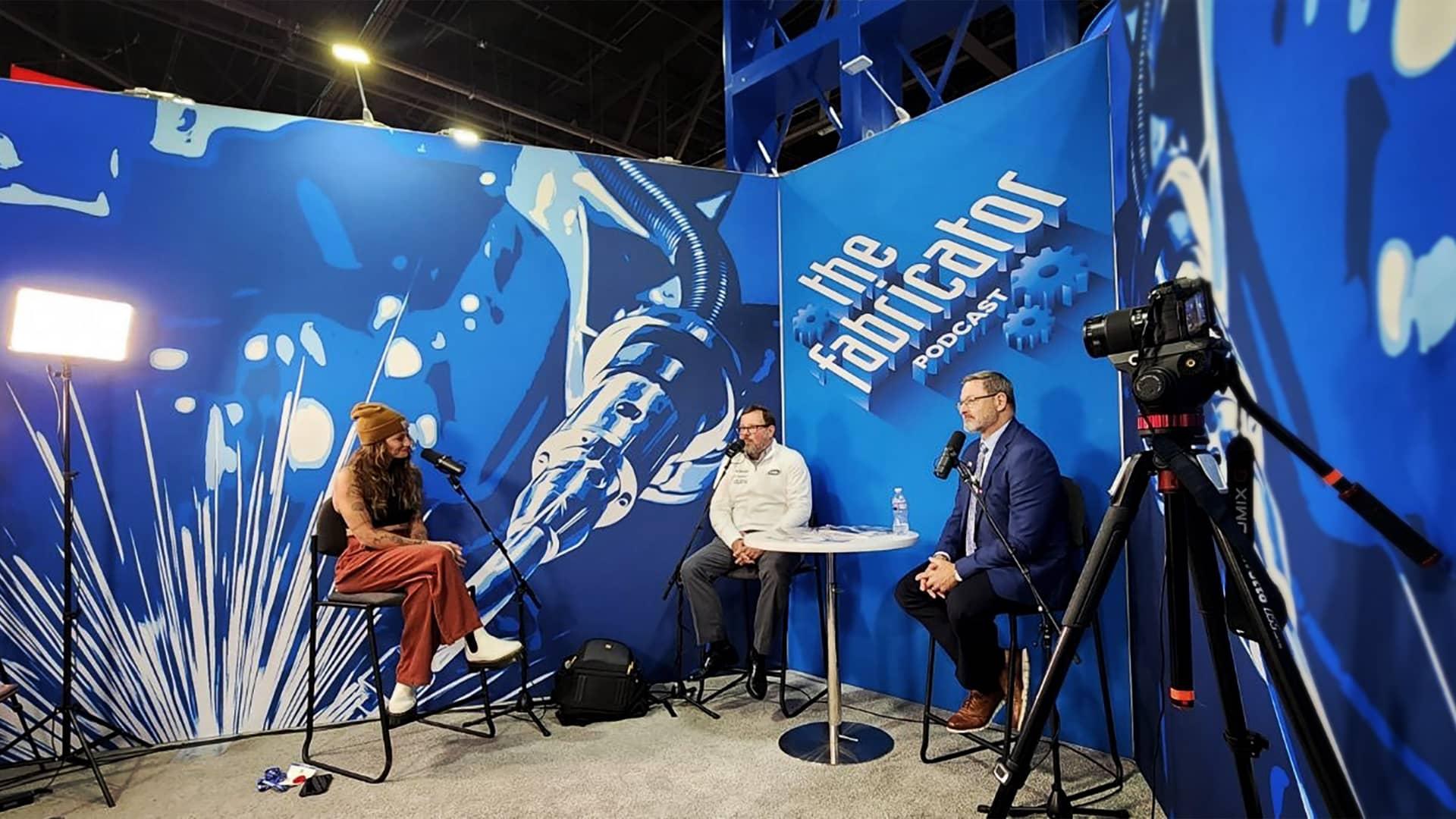
About This Podcast
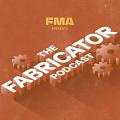
All Episodes
-
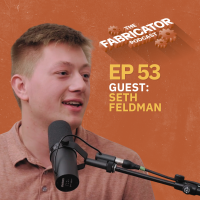 Ep. 053
Ep. 053 -
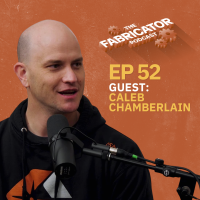 Ep. 052
Ep. 052 -
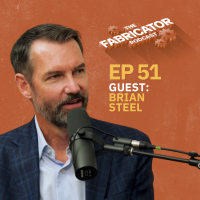 Ep. 051
Ep. 051 -
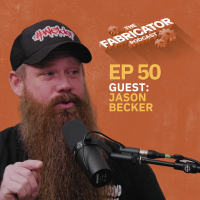 Ep. 050
Ep. 050 -
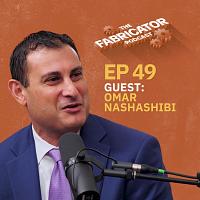 Ep. 049
Ep. 049 -
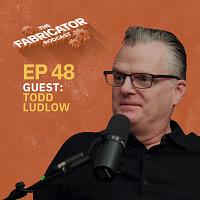 Ep. 048
Ep. 048 -
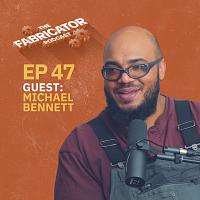 Ep. 047
Ep. 047 -
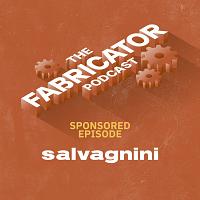 Bonus
Bonus -
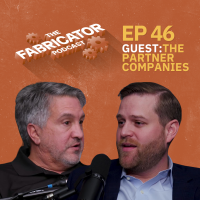 Ep. 046
Ep. 046 -
 Ep. 045
Ep. 045 -
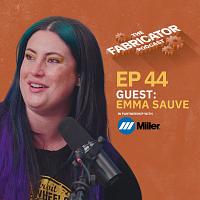 Ep. 044
Ep. 044 -
 Ep. 043
Ep. 043 -
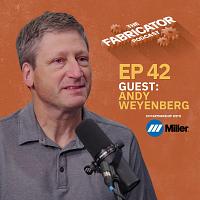 Ep. 042
Ep. 042 -
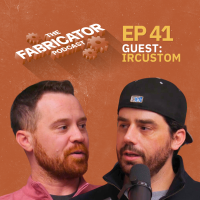 Ep. 041
Ep. 041 -
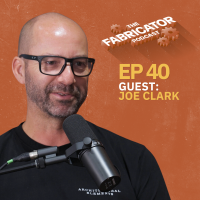 Ep. 040
Ep. 040 -
 Ep. 039
Ep. 039 -
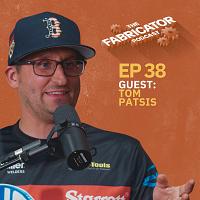 Ep. 038
Ep. 038 -
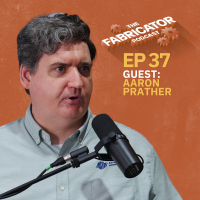 Ep. 037
Ep. 037 -
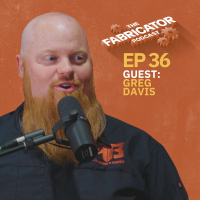 Ep. 036
Ep. 036 -
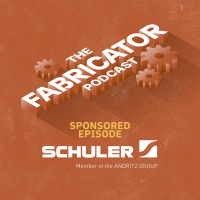 Bonus
Bonus -
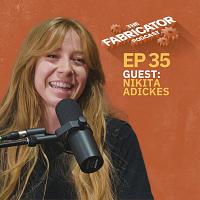 Ep. 035
Ep. 035 -
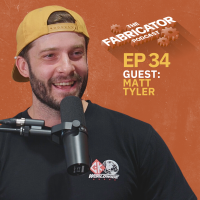 Ep. 034
Ep. 034 -
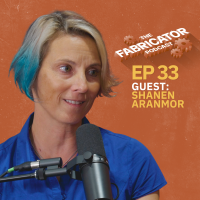 Ep. 033
Ep. 033 -
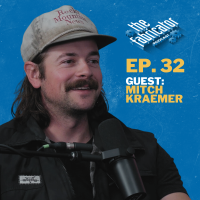 Ep. 032Taking an aerial equipment fabrication business to the next level
Ep. 032Taking an aerial equipment fabrication business to the next level -
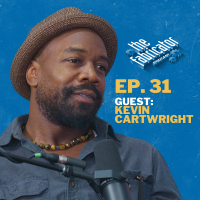 Ep. 031
Ep. 031
























